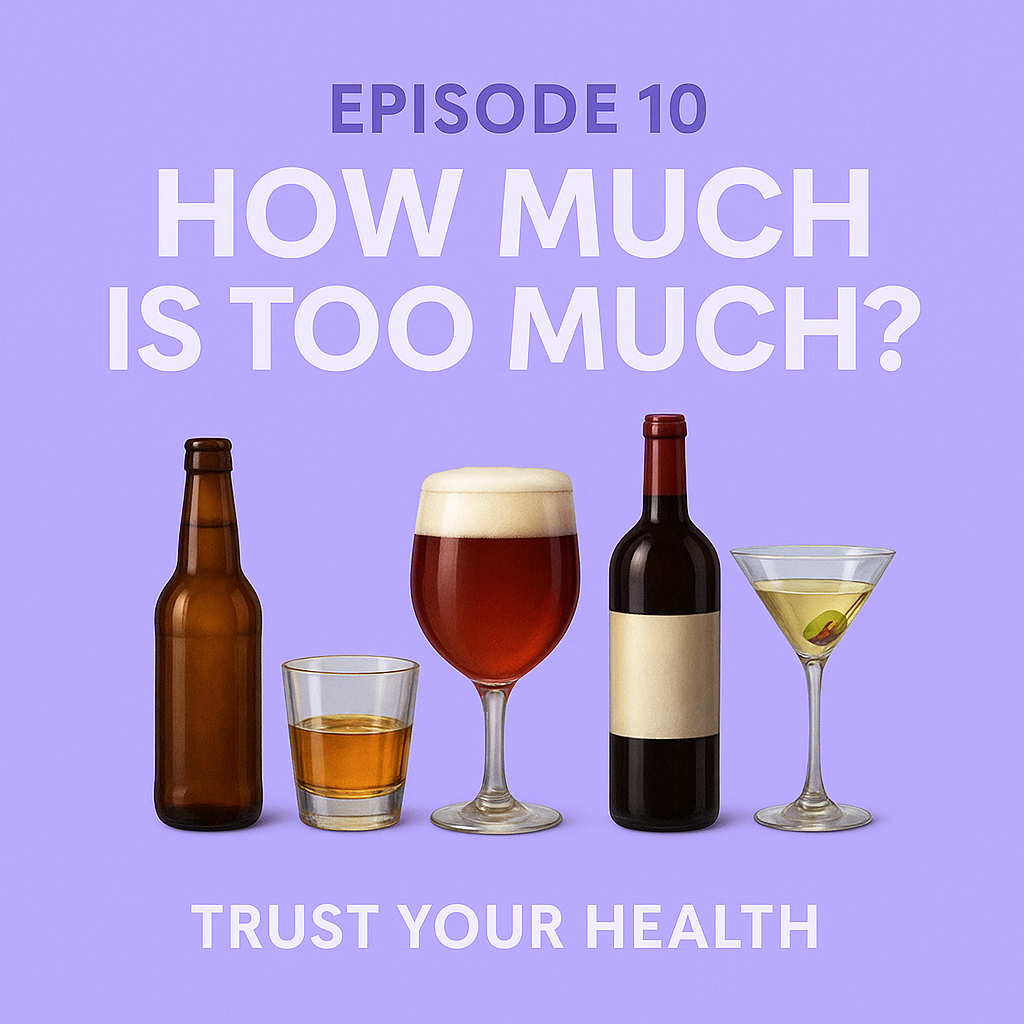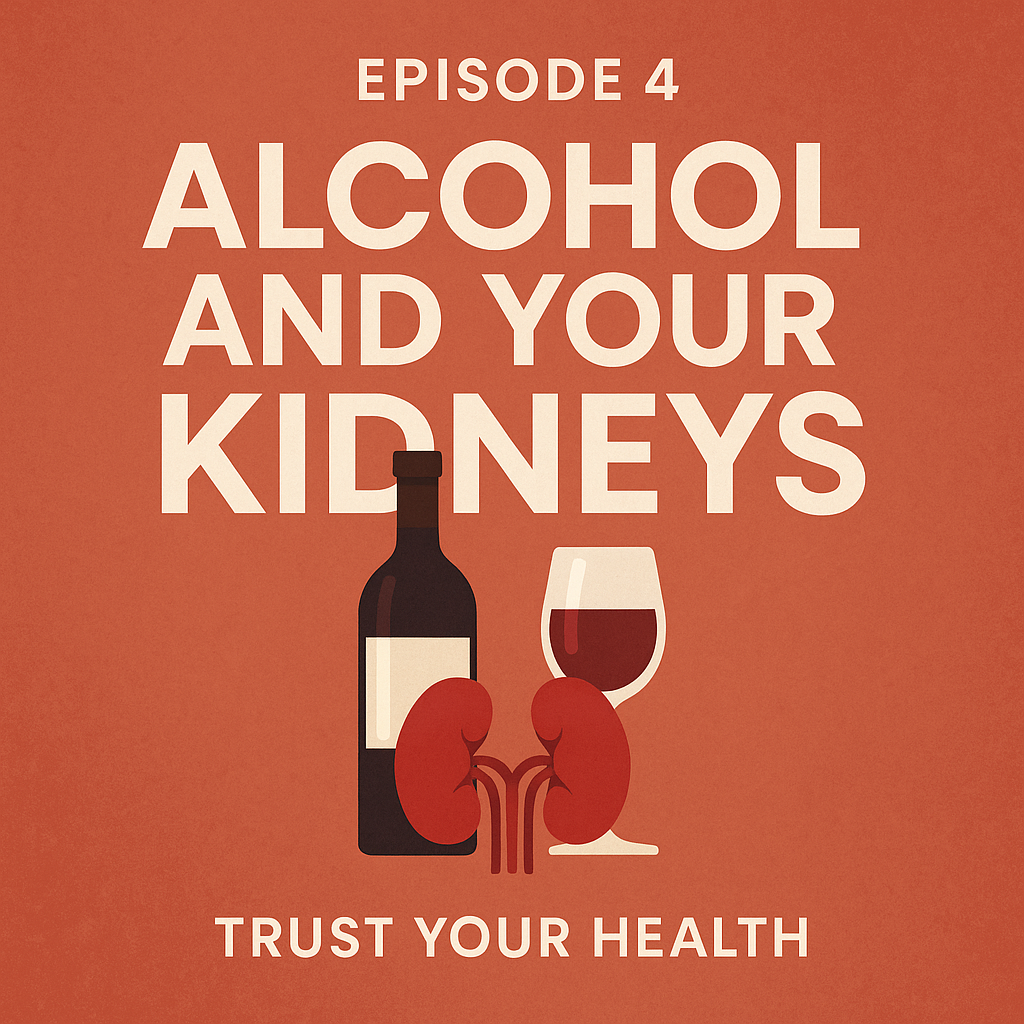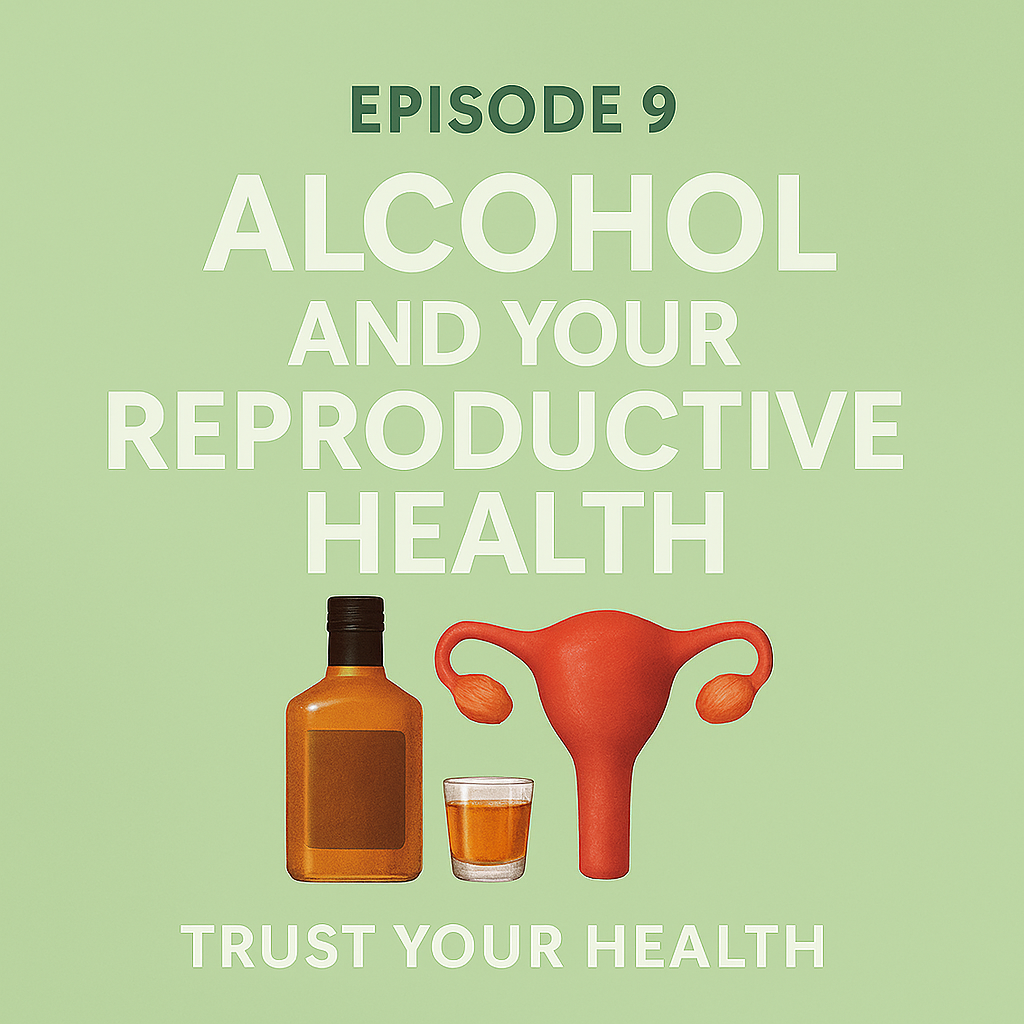Episode Transcript
You’ve heard it before: a little red wine is good for your heart.
The truth? That story was wrong.
In this episode of Trust Your Health, we’re cutting through the noise about alcohol and your heart — and showing you what actually happens, even when you only drink “a little.”
Let’s start with the myth. Studies in the 1980s and 90s claimed that light drinkers lived longer and had healthier hearts than non-drinkers. But deeper research revealed the flaw: those “non-drinkers” often included people who already had health problems or had quit drinking because of illness. So drinking looked protective — but it wasn’t.
What we know now is clear: alcohol strains your heart, even in small amounts.
First, alcohol raises your blood pressure. Sometimes after just one or two drinks, your blood pressure climbs — and stays elevated hours later. Over time, that damage adds up. High blood pressure silently wears down the arteries, increasing your risk of stroke, heart attack, kidney damage, and even vision loss.
Next is rhythm. Alcohol disrupts the electrical system that keeps your heart beating in sync. This can trigger atrial fibrillation, or AFib — an irregular, often rapid heartbeat. Even moderate drinking doubles the risk of AFib. And AFib isn’t just a nuisance — it raises your stroke risk fivefold. You may feel palpitations, dizziness, or fatigue — or nothing at all — but the damage is still happening.
Alcohol also weakens the heart muscle itself. Over time, regular drinking can lead to cardiomyopathy — where the heart walls thin, stretch, and lose their ability to pump blood effectively. This can cause swelling in your legs, breathlessness, and fatigue — and it doesn’t always reverse when you stop drinking.
And alcohol raises triglycerides — a type of fat that contributes to hardened, clogged arteries, making heart attacks and strokes more likely.
Here’s the most dangerous part: you won’t necessarily feel it. Your heart can take years of silent abuse before it shows symptoms. You might think you’re healthy — but one day, you wake up with high blood pressure, a stroke, or heart failure.
So how much is too much? The data says that no amount of alcohol is good for your heart. If you choose to drink, stay under one drink per day for women, two for men — and even then, skip days completely.
If you already have high blood pressure, heart rhythm problems, or signs of heart failure, the advice is stronger: stop drinking completely. Your heart needs the chance to recover.
Here’s what you can do right now.
Start by checking your blood pressure — at home, at a pharmacy, or at your doctor’s office. High blood pressure often has no symptoms.
Notice how your body feels when you drink — if you get palpitations, dizziness, or feel unusually tired, talk to your doctor.
And if you’re serious about your health, stop believing the myth of “wine for your heart.” The science doesn’t support it — and your heart deserves better.
In our next episode, we’ll take on alcohol’s impact on your pancreas — and how this overlooked organ silently suffers, putting your digestion and blood sugar at risk.
Thanks for listening to Trust Your Health. Because trusting your health begins by understanding your body.
Be sure to follow the podcast so whenever you need clear, honest advice about your body, we’ll be here to help you make sense of it.


